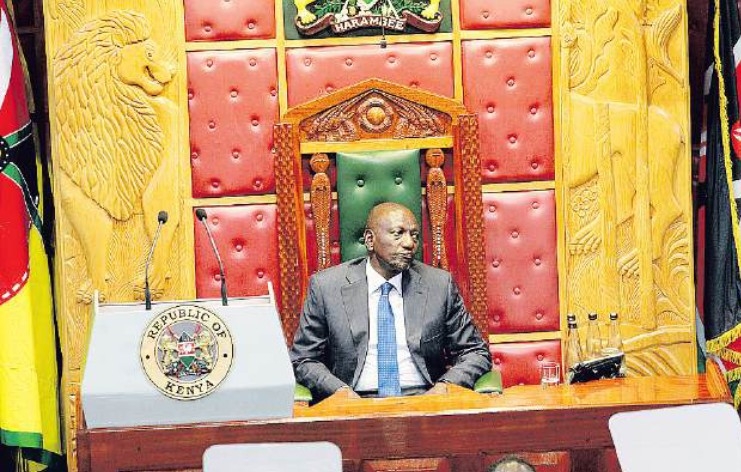As we mark Men's Mental Health Awareness Month, it is imperative to address a growing concern that has captured the nation’s attention: the use of muguka. Muguka, a stimulant derived from the khat plant, has been a topic of debate in recent weeks.
While there is no doubt that it brings significant economic benefits contributing billions to the local economy, its potential health risks and societal implications cannot be overlooked.
Young men, not just in the coastal region but in Kenya as a whole, are increasingly turning to muguka, possibly as a coping mechanism in the face of rising unemployment and a global shift in gender dynamics.
Muguka has been a significant cash crop in Meru and Embu counties, the country’s largest khat-growing region. Its cultivation and sale provide livelihoods for many farmers and traders, contributing to local economies.
However, the economic gains are juxtaposed with alarming health concerns. Health experts and local leaders have raised concerns about muguka’s detrimental effects, especially on mental health. Chronic use of the stimulant is linked to anxiety, depression and even psychosis, with young men being the most affected demographic.
Kenya's unemployment rate has been climbing, with young men bearing the brunt of this harsh reality. According to 2024 data from the International Labour Organization, the unemployment rate among youth stands at a staggering 5.6 per cent. This economic stagnation has left many young men disillusioned and searching for ways to cope with their frustrations and anxieties. In this context, muguka offers a temporary escape from their bleak realities.
The use, or as some would argue abuse, of muguka as a coping mechanism is a symptom of deeper societal issues. With limited job opportunities and a lack of support systems, young men find themselves in a vicious cycle of stress and substance abuse. Muguka’s stimulating effects provide a temporary sense of euphoria and escape, but this relief is short-lived and often leads to a dependency that exacerbates mental health issues.
Another layer to this complex issue is the shifting gender dynamics witnessed the world over. Historically, men have held dominant roles in society, while women have often been relegated to secondary positions. However, recent years have seen a significant empowerment of women. Women are increasingly occupying leadership roles in business, politics and other sectors, challenging the traditional gender hierarchy.
This empowerment of women, while a positive stride towards gender equality, has also had unintended consequences on men's self-perception. Many young men feel emasculated and threatened by the success of women, leading to an identity crisis.
The traditional markers of masculinity—such as being the primary breadwinner and holding authoritative positions—are no longer guaranteed, causing some men to turn to substances like muguka to cope with their perceived loss of status and purpose.
This phenomenon is not unique to Kenya. Across the globe, societies are witnessing a shift in gender roles and expectations. The rise of the feminist movement and the push for gender equality have altered the social fabric, prompting men to re-evaluate their roles. In many Western countries, similar patterns of substance abuse and mental health struggles among men have been observed as they navigate these changes.
To tackle the muguka problem effectively, a multi-faceted approach is required. First and foremost, there needs to be an increase in awareness and education about the health risks associated with muguka use. Public health campaigns should target young men, providing them with accurate information and encouraging them to seek healthier coping mechanisms.
Secondly, there is a dire need for job creation and economic opportunities. Government and private sector initiatives should focus on creating sustainable jobs for the youth. This could involve investing in vocational training and entrepreneurship programmes that equip young men with the skills needed to thrive in today’s economy.
Moreover, mental health support systems must be strengthened. Counselling services, support groups and mental health clinics should be made accessible to those in need. By addressing the root causes of stress and anxiety, we can reduce the reliance on substances and associated abuse.
In addition to the above, The Social Health Insurance Fund also plays a crucial role in supporting the efforts to address these intertwined issues of addiction and mental health.
By providing comprehensive healthcare coverage, individuals struggling with drug abuse addiction and mental health issues can now receive the necessary medical attention and support as they are all now covered under the scheme.
This underscores SHIF’s aim and mission to improve access to healthcare, especially for low-income individuals while offering expansive health coverage.
Muguka presents a complex challenge that intertwines economic benefits with significant health risks and social implications. As we observe Men's Mental Health Awareness Month, it is crucial to address the underlying issues driving young men to substance abuse.
By promoting mental health awareness, creating economic opportunities and fostering gender inclusivity, we can help young men navigate these challenging times without resorting to harmful substances.
The health and well-being of our men are paramount, and it is only through a concerted effort that we can achieve a healthier, more prosperous future for all.
Founder, Nairobi Women’s Hospital






![[PHOTOS] Ruto present as NIS boss Noordin Haji's son weds](/_next/image?url=https%3A%2F%2Fcdn.radioafrica.digital%2Fimage%2F2025%2F11%2Ff8833a6a-7b6b-4e15-b378-8624f16917f0.jpg&w=3840&q=100)










